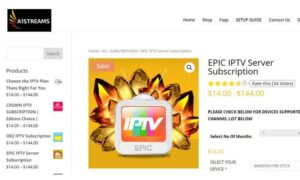The Utah Telecommunication Open Infrastructure Agency, also known as Utopia, was created in collaboration of cities of Utah. It is an open fiber network that links multiple cities and fosters competition among communication service providers that offers internet, television and telephone services.
It is said that Utopia is the next step in communication technology. Utopia is a fiber optic infrastructure which utilizes light particles to transfer information faster. This makes it the fastest communication technology on earth. Utopia offers a speed of up to 100 times faster than your current connection.
Utopia is a consortium of 14 cities of Utah. It is engaged in deploying and operating fiber optic to the premises of network to every business and household. Utopia operates in wholesale level and is prohibited by law from providing retail services. But the competition among the service provider gives more options and cheaper service to the consumers. It is built with full redundancy, which simply means that even if a portion is damaged, Utopia will keep running smoothly. This makes it reliable and dependable. The project is considered as one of the most ambitious efforts in the world.
As of the moment, Utopia has five service providers. These include Fibernet, Fuzecore, Nuvont, Veracity, XMission. Fibernet was established in 1994, offering business internet services, collocation services, online marketing, Design and development services, security and monitoring services and outsourced and managed IT services. Fuzecore, Nuvont and Veracity on the other hand , specializes in internet and VoIP services for residential needs and customized IP phone system for businesses. Lastly, XMission provides broadband connection, digital phone services, email, hosting and collocation services to homes and businesses.
Leading companies in Utah have chosen Utopia because it offers the next level of integrating their customers and vendors. Because Utopia is publicly owned, multiple service providers can offer their service through the network. This gives the advantages for consumer. They have wide variety of choices, lower prices and better services.
Utopia owns, operates and maintains its own infrastructure. The cost of construction of the network was started with $ 85 million in bonds. The estimated cost of the system is projected to be $ 470 million. Each municipality will fund revenue bonds for its portion of the overall investment. Service will be available in cities in the order in which they approve funds. Income from selling access to private service providers will be used to pay operating expenses and retire the bonds. Utopia anticipates positive cash flow in the first ten years, hoping to reach the break-even point for operations and debt service by year seven.
Some advocates say that Utopia will give participating cities a leg up in attracting sophisticated companies and highly educated, technology-minded individuals. The goal of the network is to be available to 723,000 residents in 248,000 households and 34,500 businesses. Prices would vary considerably depending on the service, though basic high-speed Internet access is expected to cost around $ 28 a month.
This giant step for communication technology of Utah people has drawn its name in the history of Utah or maybe on the history of the world.



